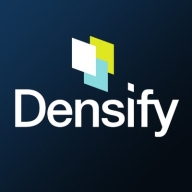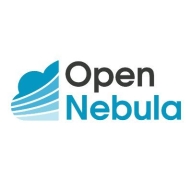

Densify and OpenNebula compete in cloud services, with Densify specializing in optimization and OpenNebula in cloud management solutions. OpenNebula seems to have the upper hand due to its flexible features and potential ROI advantages.
Features: Densify focuses on cloud optimization, providing advanced analytics for resource allocation, risk identification, and cost reduction. It offers features like enhanced server density management and a comprehensive Control Console for capacity utilization insights. OpenNebula facilitates end-to-end cloud management with hybrid and multi-cloud capabilities. It includes integration with various hypervisors, a user-friendly UI, and templates for quick configuration and deployment, making it customizable and manageable.
Room for Improvement: Densify could enhance its flexibility and expand capability in comprehensive cloud management beyond optimization. It also has room to reduce perceived complexity in deployment processes. OpenNebula could improve by expanding its support for more hypervisors and providing more detailed documentation. Additionally, enhancing community-driven support features may address common deployment and management queries more effectively.
Ease of Deployment and Customer Service: OpenNebula's deployment is straightforward and customizable to meet diverse infrastructure needs, praised for its adaptability and ease of management. Densify offers a more structured deployment with strong customer support, guiding users through optimization processes efficiently. OpenNebula is known for its flexibility, while Densify provides a guided approach to optimize cloud environments.
Pricing and ROI: Densify's pricing is viewed as relatively high but justified by significant cloud cost reductions, offering effective optimization. OpenNebula boasts a lower setup cost and impressive ROI through comprehensive management features. While Densify delivers direct cost savings, OpenNebula's extensive management capabilities provide a solid long-term ROI benefit.
| Product | Market Share (%) |
|---|---|
| OpenNebula | 5.7% |
| Densify | 0.9% |
| Other | 93.4% |


| Company Size | Count |
|---|---|
| Small Business | 1 |
| Midsize Enterprise | 1 |
| Large Enterprise | 9 |
| Company Size | Count |
|---|---|
| Small Business | 7 |
| Midsize Enterprise | 6 |
| Large Enterprise | 3 |
Densify is a hybrid cloud and container resource management platform that makes workloads self-aware of their precise resource requirements and automates the resource management and selection process. This solution helps you control your cloud spend and also helps your apps perform and scale better. Densify enables you to match your cloud requirements with the optimal cloud supply. Additionally, Densify is the only technology that leverages patented, predictive machine learning-powered analytics to perform advanced modeling of workload patterns, and provide precise optimization directives. It is ideal for cloud engineers, container platform owners, and IT finance.
Densify works by:
Densify Features
Densify has many valuable key features. Some of the most useful ones include:
Densify Benefits
There are many benefits to implementing Densify. Some of the biggest advantages the solution offers include:
OpenNebula provides the most simple but feature-rich and flexible solution for the comprehensive management of virtualized data centers to enable private, public and hybrid IaaS clouds. OpenNebula interoperability makes cloud an evolution by leveraging existing IT assets, protecting your investments, and avoiding vendor lock-in.
OpenNebula is a turnkey enterprise-ready solution that includes all the features needed to provide an on-premises (private) cloud offering, and to offer public cloud services.
We monitor all Cloud Management reviews to prevent fraudulent reviews and keep review quality high. We do not post reviews by company employees or direct competitors. We validate each review for authenticity via cross-reference with LinkedIn, and personal follow-up with the reviewer when necessary.